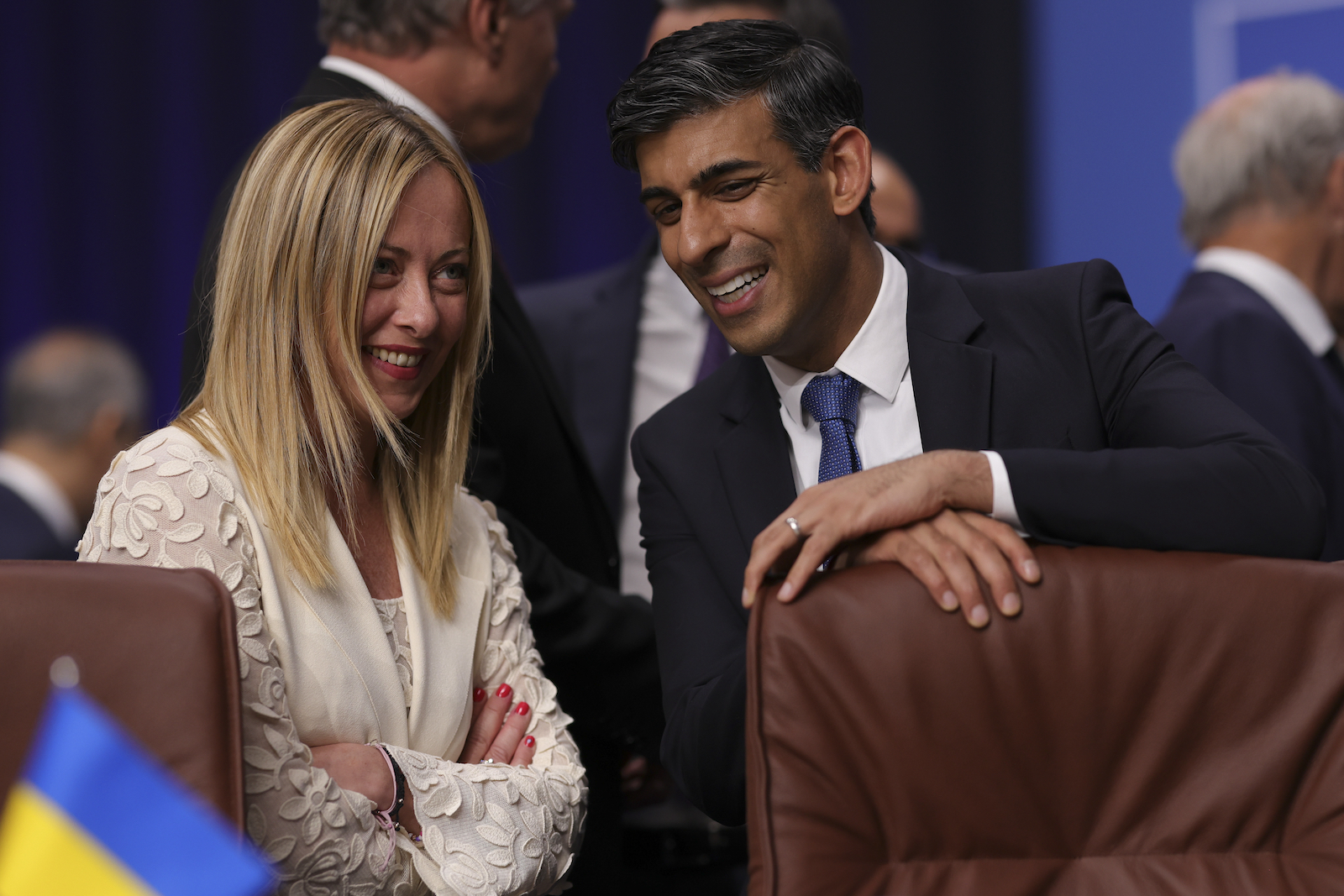
Meloni’s Caution, an Electoral Gimmick?
Last week, Italy’s Prime Minister Giorgia Meloni pushed back on suggestions that NATO countries should permit Ukraine to strike at targets on Russian soil. Without a doubt, it is a step back from her policy of supporting Ukraine in its defense from the Russian invasion, as her cabinet even sent lethal aid without consulting the Italian parliament. Yet this latest decision, not shared by all neighboring countries and NATO members, might stem from Meloni’s concerns over holding her party’s lead in polls for the European elections set to conclude on June 9th, rather than what is best for Ukraine’s defense.
Polls for the ongoing European parliament elections place Meloni’s Fratelli d’Italia (FdI) in the lead with 27% of the Italian vote. FdI is in the clear of the largest opposition party, Partito Democratico (PD), by an entire 8%. In fact, the polls suggest similar data to the results of the 2022 Italian general election, where FdI secured 26% of votes and was ahead of the opposition by slightly less than 8%. With strong polling data and a 19-month-long government tenure, which for Italy is longer than usual given that Italy has had 13 different ruling government coalitions since 2000, why is Meloni expressing caution for the fight in Ukraine all of a sudden?
Meloni’s caution over attacks on Russian soil could be out of fear of losing ground in polls, thus warranting a conservative shift, back to her roots. When FdI won the 2022 general election, headlines hit newspapers of “the return of fascists to power.” Yet her coalition has surprised many Italians with lenient positions, such as turning a ‘blind’ eye to immigrants and not following through with promises of a stiff-armed approach. The solutions proposed and partially implemented were a refugee reception center in Albania (meant to be open over two weeks ago) and increased funding to African countries to combat smuggling. These actions, which have not slowed the pace of refugees to Italy, are a clear moderation of her party’s stance.
In FdI’s 2017 “Trieste Thesis,” they denounce the “ongoing Islamification of the European continent” and push to have “Italians first” in work, public housing, and even daycare. The “Trieste Thesis” marked a clear anti-immigrant and Euro-skeptic (albeit willing to remain in the EU) alternative to the mainstream Italian parties. Voters chose FdI, as a protest vote to the conventional parties that were not satisfying the people and making them feel heard, but also because of its firm conservative values and proposed solutions. The more Meloni strays away from her platform, the more she risks losing credibility as a far-right party. Meloni must be careful as to how far she is willing to bend her party platform, which is why it is convenient for her to hold a stance more supported by her voters on the eve of an important election.
Meloni might be correctly understanding that if she pushes too far astray of her party platform, her coalition could fall apart, ruining her hopes of a long-term government. One internal matter that she must be careful about is her Deputy Prime Minister Matteo Salvini. Salvini, a prominent figure in contemporary politics for both his role and character, is an ardent defender of Russian President Vladimir Putin. Back in 2017, Putin’s political party signed a cooperation agreement with Lega, Matteo Salvini’s very own political party. Salvini even legitimized this year’s Russian elections by stating, “When the people vote, they are always right,” in some sense endorsing Putin as a leader.
With Meloni looking to establish a long-term government and break the modern Italian norm of short government coalitions, she cannot afford a collapse of her coalition. In the 2022 general election, Lega secured a strong 8.9% which helped Meloni come to power. This earned Salvini an important seat in the coalition, as well as the understanding that his views matter in the decision-making process of the government. If he feels it is not the case, Salvini is one who is not afraid to make a government coalition fall apart.
Not permitting Ukraine to strike within Russia is a clear sign of a renewed conservative push by Giorgia Meloni and her FdI, which aligns with the ongoing discussion of forming a stronger conservative bloc across the European parliament. France’s Marine Le Pen has been vocal about merging with Meloni’s FdI and other far-right parties to create a stronger front in the European Parliament. Now, with Hungary’s Victor Orban supporting the cause, a far-right coalition can pose a threat and change the direction of the European Union. For such a combined far-right coalition to be possible, Meloni and her FdI must align closer to Orban’s Fidesz and Marine Le Pen’s National Rally. Since the Russian invasion of Ukraine, Orban has sided with Putin and Russia, ignoring calls to arm Ukraine and cutting trade with Russia. The cost of Meloni’s convergence to Orban is clear: support for Ukraine and permitting it to push back against the Russian invasion.
